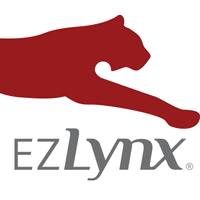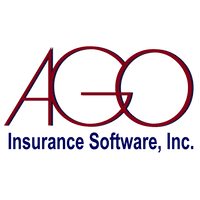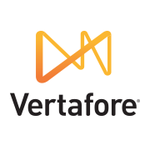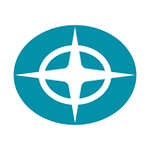Yes, current insurance rating software can be accessed from numerous devices and platforms. This means you may use the software on any device with an internet connection, including your laptop, tablet, or smartphone. It works on both Windows and Mac PCs, as well as Android and iOS devices. This flexibility enables users to access and utilize the program at any time and from any location, making it ideal for mobile insurance professionals.
List of Best Insurance Rating Software
EZLynx is a highly efficient insurance policy management software designed for independent insurance agencies. It is the ideal solution for agencies looking to acquire new clients and improve customer retention. With a range of training options, incl...Read More EZLynx
Experience the ease of managing your insurance agency with Applied Rater - the advanced cloud-based solution. Say goodbye to repetitive tasks with its user-friendly interface, automated quoting, contact management, and pricing management tools. Boost...Read More Applied Rater
Agois - a software solution built specifically for property and casualty insurance companies. Our all-inclusive suite of modular systems offers policy administration and claims processing tailored to fit the unique requirements of insurers of any siz...Read More Agois
DRC Insurance is the leading software in the insurance industry. Our cutting-edge technology sets us apart from competitors, providing unparalleled efficiency and transformative solutions for insurance companies. With our innovative approach, we opti...Read More DRC Insurance
TurboRater, the powerful insurance rating software designed for agents. This user-friendly tool makes the quoting process quick and efficient by generating instant and dependable quotes from multiple carriers. With TurboRater, agents can save valuabl...Read More TurboRater
AccuAgency is a insurance software specifically designed to simplify policy management. With its cutting-edge features, such as real-time quoting and comprehensive reporting, agents can enhance their productivity, reduce administrative tasks, and del...Read More AccuAgency
Vertafore Agency is a insurance technology solution designed to streamline and automate operations for agencies, carriers, and MGAs. Our all-in-one platform is built to enhance efficiency and foster stronger connections within the insurance industry...Read More Vertafore Agency
Jenesis Insurance is a agency management software for insurance companies. Elevate your online presence with our affordable and advanced system, equipped with a range of features to streamline your operations. Our dedicated support team is available...Read More Jenesis Insurance
BriteCore is a platform designed exclusively for P&C insurers. With its advanced features, including seamless integration, dynamic analytics, and customizable tools, BriteCore enables insurers to maximize operational efficiency and thrive in the ever...Read More BriteCore
NetRate is a ISO-based rating solution that guarantees precision in policy ratings. It seamlessly integrates with MGA management systems to simplify your quoting, binding, and policy issuance processes. With NetRate, you can bid farewell to duplicate...Read More NetRate
Earnix is a leading insurance rating software that simplifies the rating process with its advanced API and automated features. It ensures regulatory compliance and helps you design a new pricing system seamlessly. This highly rated software streamlin...Read More Earnix
i2go Cloud Insurance - a dynamic software as a service that simplifies insurance operations for businesses of any size. With swift product deployment, online sales, and seamless claims handling, i2go equips insurance providers to foster valuable clie...Read More i2go Cloud Insurance
Cooper Rose Digital is the premier MGA, insurer, and broker management system. Our comprehensive platform is fully customizable and aims to build trust, transparency, and leverage our extensive industry experience. Our holistic approach offers person...Read More Cooper Rose Digital
Duck Creek Rating is a solution for precise insurance product rating and analysis. Our advanced software accurately evaluates the relevance of your insurance offerings, eliminating potential errors and streamlining the rating process. Trust in our se...Read More Duck Creek Rating
Learn More About Insurance Rating Software
- What Is Insurance Rating Software?
- What Are The Recent Trends In Insurance Rating Software?
- Benefits Of Using Insurance Rating Software
- Important Factors To Consider While Purchasing Insurance Rating Software?
- What Are The Key Features To Look For In Insurance Rating Software?
- Why Do Businesses Need Insurance Rating Software?
- How Much Time Is Required To Implement Insurance Rating Software?
- What Is The Level Of Customization Available In Insurance Rating Software?
- Which Industries Can Benefit The Most From Insurance Rating Software?
- Conclusion
What Is Insurance Rating Software?
Insurance Rating Software is a powerful technology developed to help insurance businesses streamline and automate their rating operations. It handles the intricate computations that go into setting rates for various types of insurance policies, giving accurate and consistent ratings to ensure fair pricing for both the insurer and the insured.
Insurance rating software uses powerful algorithms and in-depth data analysis to consider a variety of risk indicators, including the applicant's age, geography, and driving history, as well as the cost of possible claims and past market patterns. This results in a detailed and precise risk evaluation, allowing insurers to charge reasonable rates while being profitable.
Aside from effectively analyzing risk, insurance rating software provides various other advantages. It accelerates the rating process, allowing businesses to save time and costs. It also assures compliance with industry laws and reduces errors, resulting in better customer service and satisfaction. Insurance rating software is extremely adaptable, capable of handling a variety of insurance policies and adapting to changing market conditions.
This allows organizations to introduce new insurance products rapidly and efficiently, giving them a competitive advantage in the market. Overall, insurance rating software is a must-have tool for insurance companies wanting to stay competitive in today's fast changing sector. With its extensive features and benefits, it provides a cost-effective, efficient, and precise solution for speeding the rating process, resulting in improved risk management, enhanced profitability, and, ultimately, delighted customers.
What Are The Recent Trends In Insurance Rating Software?
"In recent years, insurance rating software has become an indispensable tool for insurance companies to precisely and efficiently calculate insurance rates. As technology advances at a quick pace, the insurance rating software business has seen considerable changes and trends. One of the most noticeable trends in insurance rating software is the move to cloud-based solutions.
This provides increased flexibility and accessibility because insurance companies can access the software from anywhere with an internet connection. Furthermore, cloud-based solutions often have fewer maintenance costs and are easily scalable to suit the needs of expanding insurance organizations. Another advancement in insurance rating software is the incorporation of artificial intelligence (AI) and machine learning.
These technologies enable more precise and individualized risk assessments, as well as the automation of specific operations. This not only saves time, but also lowers the possibility of human error. Data analytics is also a critical component in the creation of insurance rating software. With the increased availability of data, insurance companies may now employ advanced analytics techniques to better analyze risks and client behavior.
This enables more precise pricing and personalized insurance solutions for specific customers. In addition to these technological changes, there has been a growing emphasis on customer experience and user-friendly interfaces in insurance rating software. This is especially crucial for insurance businesses, who deal with vast amounts of data and require a simplified method to manage it properly.
Finally, there is a growing demand for integrated insurance rating software systems that can handle all aspects of the insurance business, including underwriting, rating, and claims management, from a single platform. This streamlines operations and increases overall efficiency for insurance businesses.
Benefits Of Using Insurance Rating Software
Insurance rating software is an invaluable resource for insurance firms seeking to streamline procedures, improve accuracy, and increase overall efficiency. With the insurance sector becoming increasingly competitive, staying ahead of the curve is critical for success. Incorporating insurance rating software into your organization might provide numerous advantages that will set you apart from your competitors.
Here are some of the main advantages of using insurance rating software.
1. Accurate And Uniform Rating: One of the most significant advantages of employing insurance rating software is the ability to ensure accurate and uniform ratings across all policies. Manual rating always has the risk of human error, which can result in inaccurate premiums and potential claims concerns. Insurance rating software eliminates this risk by automating the rating process, resulting in consistently accurate calculations every time.
2. Time And Cost Savings: Insurance firms can save time and money by automating processes. Insurance rating software minimizes monotonous manual processes like data entry and calculations, allowing employees to focus on more important responsibilities. This not only saves time but also minimizes the likelihood of errors, which results in long-term cost savings.
3. Customizable And Scalable: Insurance rating software provides customization options, allowing businesses to tailor the system to their individual requirements. This implies that the software may develop alongside your company, offering a scalable solution that can adapt to your changing requirements.
4. Seamless Connectivity: Insurance rating software's connectivity capabilities allow you to easily connect it to your existing systems, such as customer relationship management (CRM) and policy administration systems. This facilitates data transfer and removes the need for duplicate data entry, hence increasing efficiency.
5. Improved Customer Experience: With insurance rating software, you can quickly provide accurate quotes for your consumers, providing a better experience. This not only boosts customer happiness but also raises your chances of closing deals.
6. Real-Time Updates: Insurance rating software gives real-time updates on rates and regulations, ensuring that your policies are constantly current and in line with industry standards. This removes the possibility of errors due to outdated information, providing piece of mind for both the organization and its clients.
Important Factors To Consider While Purchasing Insurance Rating Software?
When looking to buy insurance rating software, there are a few crucial elements to consider to ensure that you are making the greatest possible investment for your company.
From functionality to pricing, these factors can assist you in making an informed decision.
1. User-Friendly Interface: The first and most significant consideration is the software's user-friendliness. You want a platform that is simple to use and does not require substantial training for your team to operate properly. Look for demonstrations or free trials to examine the software's interface before purchasing.
2. Customization And Flexibility: Because each insurance firm has distinct requirements, it's critical to select software that allows for customization. This includes the ability to add and remove rating variables, generate custom reports, and interact with other systems. A versatile program can adjust to your changing business needs.
3. Accuracy And Speed: The goal of insurance rating software is to simplify the underwriting process and calculate rates accurately. Make sure the program has been carefully tested for accuracy and can handle large amounts of data without slowing down. You don't want to run the risk of receiving wrong rates or experiencing processing delays due to a defective system.
4. Integration With Third-Party Data Sources: In order to collect accurate and current information, your program should be able to integrate with third-party data sources such as credit scores and claims databases. This will improve accuracy while also saving time and resources.
5. Security: Because insurance firms deal with sensitive client information, it is critical to select software that includes strong security measures. Look for features like data encryption, user access controls, and conformity with industry standards.
6. Cost: While cost should not be the decisive factor, it is nevertheless important to consider your budget when comparing software solutions. Some software may charge a one-time license price, but others may use a subscription-based pricing model. Before making a decision, consider both the long-term costs and the prospective ROI.
7. Support And Training: The ideal insurance rating software vendor will provide extensive assistance and training to guarantee that your staff is able to use the software efficiently. Look for organizations that offer resources like user manuals, online tutorials, and dedicated customer service personnel. When choosing insurance rating software for your business, consider these considerations to make an informed decision.
What Are The Key Features To Look For In Insurance Rating Software?
When it comes to choosing the best insurance rating software for your business, there are a few crucial factors to consider. These features will not only improve your efficiency and accuracy, but will also streamline the entire insurance rating procedure.
These are the key elements to look for in insurance rating software so you can make an informed purchase.
1. Flexible Rating Structures: Insurance rating software should provide a flexible rating structure that enables you to tailor your rating criteria to your specific company demands. This includes the flexibility to add, amend, or remove rating criteria and algorithms in order to appropriately depict risk and calculate premiums.
2. Integration Capability: The software should be able to integrate with other systems and databases, such as policy management, claims, and underwriting systems. This ensures seamless data transmission and eliminates duplicate data entering, saving you time and lowering the possibility of errors.
3. Advanced Calculation Engine: A powerful calculation engine is essential for insurance rating software. It should be capable of handling sophisticated algorithms and rating factors, as well as a wide range of insurance products and coverages. This ensures precise and consistent premium calculations with minimal manual work.
4. Real-Time Rating: Real-time rating is an essential characteristic in today's fast-paced insurance sector. It enables instant rating and quote generation, resulting in faster decision-making and a competitive advantage in the market.
5. Scalability: As your firm expands, so will your insurance rating requirements. As a result, it is critical to select software that is flexible and adaptable to your evolving business needs. This will spare you the trouble of switching to a different system in the future.
6. User-Friendly Interface: Insurance rating software should be straightforward to use. A difficult interface might reduce productivity and increase training costs. Look for software with a simple and intuitive user interface that enables for quick and easy operation.
7. Strong Reporting And Analytics: Reporting and analytics are essential for any firm to obtain insights and make sound decisions. The program should include strong reporting tools as well as data visualization to assist you in monitoring trends, tracking performance, and identifying areas for improvement.
Why Do Businesses Need Insurance Rating Software?
Businesses use insurance rating software because it simplifies and automates the process of calculating insurance premiums and quotes. This program employs modern algorithms and data analysis to deliver precise and consistent ratings while taking into account a variety of risk factors such as location, industry, and claims history. This saves insurance agents time and effort while also ensuring that customers receive fair and competitive rates.
With the capacity to swiftly create several estimates, businesses can provide their clients with a broader range of insurance options, enhancing their chances of closing the deal. Insurance rating software also helps organizations comply with industry regulations and standards. It eliminates human error and reduces the likelihood of manual miscalculations, which can result in costly blunders and legal consequences.
Furthermore, this software can provide significant insights and data analytics to help firms identify and handle any hazards in their policies. This allows them to make more informed judgments and optimize their pricing tactics, ultimately leading to higher profits. Overall, insurance rating software is a valuable tool for insurance companies. It not only increases productivity and accuracy, but it also allows them to remain competitive and deliver the best possible service to their clients.
How Much Time Is Required To Implement Insurance Rating Software?
The time necessary to implement insurance rating software varies based on a number of factors, including your organization's size, the complexity of your insurance products, and the level of customization required. Most insurance rating software suppliers offer implementation timelines ranging from a few weeks to a few months. However, it is important to realize that the extent to which you prepare and collaborate with the software vendor can influence this schedule.
Typically, the first stage in the implementation process is to identify your organization's needs and requirements. This includes gathering information about your products, rates, and rating criteria. Next, the software vendor will collaborate with you to design your rating structure and implement the system properly. This stage frequently entails migrating data from your current system to the new program.
Training and testing are also critical components of the implementation process. Your team will need to receive training on how to use the program properly and successfully. The software vendor may also run repeated rounds of testing to guarantee that the system is working properly. Ultimately, the time of the implementation process will be determined by the complexity of your insurance products and your team's capacity to adjust to the new software. To achieve a successful transition to the new system, appropriate time and resources must be allocated to the implementation process.
What Is The Level Of Customization Available In Insurance Rating Software?
When selecting insurance rating software, one of the most important considerations is the level of customization available. This refers to the software's capacity to be customized to your exact demands and specifications.
In this buyer's guide, we'll go over the many levels of customization available in insurance rating software, as well as how they can help your business.
1. Basic Modification: Most insurance rating software will allow some amount of basic modification. This usually includes the option to incorporate your company's logo and branding to the program, as well as unique user rights and access levels. This level of personalization is useful for building your business identification and ensuring that only authorized users have access to critical information.
2. User Interface Customization: Some insurance rating software provides more customization options for the user interface. This means you can change the structure, color palette, and overall style of the software to suit your needs and productivity. This amount of personalization can enhance the user experience and boost productivity.
3. Rating Calculation Customization: One of the most important aspects of insurance rating software is its capacity to compute insurance rates precisely and effectively. Depending on the complexity of your insurance products, you may need more flexibility in the rating calculation process. This includes the ability to create unique formulas, rules, and factors to precisely compute rates for your individual products.
4. Integration And APIs: Some insurance rating software allows for advanced customization through integration with other systems and APIs. This enables you to integrate the program with your existing systems, such as customer relationship management (CRM) software, to improve process and data management. It also allows you to add new features and functionalities to the software.
5. White Labeling: For organizations trying to provide a consistent experience for their clients, white labeling could be a significant feature of personalization. This entails deleting any branding from the insurance rating program and rebranding it as your own. This might help you create client trust while also preserving brand consistency.
Which Industries Can Benefit The Most From Insurance Rating Software?
Insurance rating software is a strong instrument that can aid a wide range of sectors by calculating insurance rates accurately and efficiently. This technology simplifies the complex process of calculating insurance rates, allowing businesses to save time and resources while providing the most accurate premiums to their customers. However, which industries will profit the most from insurance rating software?
Let's have a closer look.
1. Insurance Companies: The most obvious industry that could benefit from insurance rating software is insurance firms. These software applications were specifically created to meet the demands of insurance firms, taking into account all of the aspects and data essential for proper rate computations. Insurance rating software enables insurance firms to decrease manual errors, automate operations, and offer cheap prices to their clients, giving them a competitive advantage in the market.
2. Banking And Financial Institutions: Banks and financial institutions can also profit from insurance rating software. These organizations frequently provide insurance products to their clients and must assess and price the risks connected with these policies. Insurance rating software allows banks and financial organizations to automate the process, decrease human error, and give correct rates to their consumers.
3. Healthcare Industry: In addition, the healthcare industry can benefit from insurance rating software. With rising healthcare expenses, using a dependable software application for insurance rate computations can assist healthcare providers in keeping costs down while providing enough coverage for their patients. This program can use characteristics such as age, geography, and pre-existing diseases to calculate the best insurance prices for people or businesses in the healthcare industry.
4. Auto Industry: The car business can also profit significantly from insurance rating software. Auto dealerships and manufacturers frequently provide warranty and insurance choices for their automobiles, and having effective rating software can help streamline the process. This software can instantly calculate rates depending on vehicle type, model, and other variables, allowing the industry to give fast and competitive insurance solutions to customers.
5. Retail Industry: The retail industry can also profit from insurance rating software, particularly for products that require additional insurance coverage, such as electronics and appliances. This program allows shops to reliably calculate insurance premiums for these products and incorporate them in their pricing, providing customers with transparency.
Conclusion
To summarize, adopting insurance rating software is an important decision for any insurance firm trying to streamline procedures and increase operational efficiency. This buyer's guide provides a complete overview of the important features and variables to consider when selecting the best software for your business.
We've talked about the necessity of functionality, accuracy, and flexibility in insurance rating software, as well as the advantages of integrations, data security, and customer service. To make an informed decision, you must first assess your company's demands and compare the capabilities of each product. In addition, we have highlighted some popular insurance rating software choices on the market and provided neutral reviews to help you make an informed decision.
Conducting a product demo and soliciting opinions from other insurance professionals can also assist in making the final decision. Investing in the correct insurance rating software can lead to more efficiency, production, and profitability for your insurance company. We hope this guide has given you helpful insights and guidance in making the right decision for your company's future development.
Insurance Rating Software FAQ's
Can Insurance Rating Software Be Accessed Across Multiple Devices And Platforms?
Is Insurance Rating Software Future-Proof And Adaptable To Emerging Technologies Like AI, Blockchain Or IoT?
Yes, insurance rating software is intended to be future-proof and adaptable to new technologies like AI, blockchain, and IoT. These technologies are already being implemented in the insurance sector, and rating software is being modified to reflect them.
With the ability to analyze massive amounts of data, use powerful algorithms, and expedite procedures, insurance rating software is always improving to meet the changing needs of the insurance business and remain competitive in the market.
Is There A Free Trial Offered To Assess Insurance Rating Software Before Committing?
Many insurance rating software suppliers provide free trials so that potential customers can evaluate the product before making a commitment. This allows you to evaluate the features and functionality and determine whether they match your specific requirements.
It is critical to take advantage of these trial offerings to confirm that the software corresponds with your company's objectives and practices. Contact your selected supplier or visit their website for more information on their free trial choices.
Does Insurance Rating Software Offer Data Security Features And Meet Regulatory Compliance Standards?
Yes, insurance rating software includes strong data security safeguards and is intended to meet regulatory compliance requirements. Encryption, access controls, and regular security audits are among the safeguards used to protect sensitive information. Furthermore, insurance rating software is continually updated to ensure compliance with industry laws, giving firms who use it piece of mind.
Can Insurance Rating Software Integrate Seamlessly With Existing Tools And Platforms?
Yes, current insurance rating software is designed to work seamlessly with other tools and platforms, like as CRM systems and agency management software. This enables a continuous flow of data and information, eliminating the need for manual data entry and saving time and effort. Furthermore, connection with other platforms provides consistent and correct data across all systems, resulting in increased efficiency and accuracy in the insurance rating process.
















